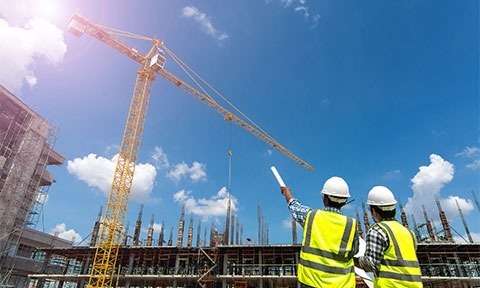Production Engineering Course
- Course covers basic and modern petroleum production engineering.
- Emphasis on field performance enhancement and maintenance operations.
- Teaches how to optimize a production system and maximize recoverable reserves.
- Designed for petroleum engineers, process engineers, and more.
- Instructor Gioia Falcone has extensive experience in petroleum engineering.
Overview
The Production Engineering Course is designed for petroleum engineers and professionals with limited production engineering background. It covers basic and modern petroleum production engineering, focusing on integrated production systems from reservoir to surface. The course aims to enhance field performance, optimize production systems, and maximize recoverable reserves within physical constraints. Topics include reservoir inflow, well completions, multiphase flow modeling, flow assurance, artificial lift, and field management optimization. The course includes exercises, discussions, and demos to build understanding and confidence in production engineering principles.
Who should attend
Petroleum Engineer, Process Engineer, Development Geologist, Oilfield Production Manager, Field Engineer
Course Content
Course Level: Foundation / Skill
This course covers basic and modern petroleum production engineering by providing an understanding of integrated production systems, from reservoir to surface.
The course begins with a review of the basic principles of reservoir, wellbore and surface network modelling, to then present solutions to couple together the different elements of a production system. Emphasis will be placed on field performance enhancement and maintenance operations.
The course will also teach how to optimise a production system and maximise the recoverable reserves from a field given the physical constraints dictated by the production system itself and knowing the limitations of current modelling tools.
DESIGNED FOR YOU, IF YOU ARE…
• A petroleum engineer, process engineer, development geologist, oilfield production manager or field engineer with a limited background in production engineering
HOW WE BUILD YOUR CONFIDENCE
After introducing the key concept of integrated production systems, you will be taken through its individual components (the reservoir, the near-wellbore region, the well and the surface facilities), according to the natural flow direction – from source to point of sale. Along the flow path, the nature and the role of the boundaries between consecutive components will be discussed.
After reviewing a simple, naturally flowing system, the sequence will be revisited once more, this time considering options to improve the productivity throughout the system and solutions to prevent or remediate flow assurance issues.
The course includes exercises, class discussions of typical production engineering problems, short films and demos of integrated production models. You will be encouraged to bring your own case studies for discussion in the class.
THE BENEFITS FROM ATTENDING
By the end of the course you will feel confident in your understanding of:
• The fundamentals of integrated production systems
• How to review and screen available input data to set up an integrated production model
• Selecting methods to optimise a production system and maximise the recoverable reserves
TOPICS
• Introduction to integrated production systems
• Review of reservoir inflow characterisation
• Review of well completions
• Review of multiphase flow modelling in wellbores, risers and flowlines
• System analysis: linking the reservoir, the near-wellbore, the wellbore and the surface facilities
• Flow assurance issues
• Review of surface facilities
• Artificial lift
• Liquid unloading in gas wells
• Downhole and seabed water separation
• Hydraulic fracturing
• Acidising
• Flow measurement and production allocation
• Production logging
• Planning short-, medium- and long-term optimisation of field management:
– Water and gas shut-offs
– Re-perforation
– Stimulation
– Re-completion
– Debottlenecking of topsides facilities
– Handling transient flow situations in the system
– Issues around the chosen export route
– Offshore vs. onshore scenarios
CUSTOMER FEEDBACK
“The instructor has an excellent ability to deliver the information in an easy way” – Petroleum Engineer at Qatar Petroleum
“Good balance between theoretical and practical (in situ) data/situations” – Engineer at Partex Services Portugal
INSTRUCTOR:-
Gioia Falcone is Professor and Head of the Oil and Gas Engineering Centre at Cranfield University, UK. She previously held the Endowed Chair and Professorship in Geothermal Energy Systems at Clausthal University of Technology, where she was also the Director of the Institute of Petroleum Engineering. She was formerly an assistant and then associate professor in petroleum engineering at Texas A&M University, Chevron Corporation Faculty Fellow and faculty member of the ODASES partnership.
She holds a Laurea Summa Cum Laude in environmental-petroleum engineering from the University Sapienza of Rome, an M.Sc. degree in petroleum engineering from Imperial College London and a Ph.D. in chemical engineering from Imperial College London.
Prior to joining Texas A&M, she worked with ENI-Agip, Enterprise Oil UK, Shell E&P UK and TOTAL E&P UK, covering both offshore and onshore assignments.
She has served on the SPE Technical Program Committees for the ATCE, LACPEC and CO2 Storage and Utilization conferences. She is a technical editor and reviewer for several peer-reviewed journals. She was the recipient of the SPE Young Professional Paper Certificate at the 2008 and 2009 SPE ATCE Conferences in recognition of her paper contributions to the technical discipline of projects, facilities and construction. She has co-authored over a hundred scholarly articles and one US patent, edited the 2012 Multiphase Flow Metering SPE Reprint Series “Getting up to Speed” and co-authored the 2009 book on Multiphase Flow Metering, published by Elsevier.



